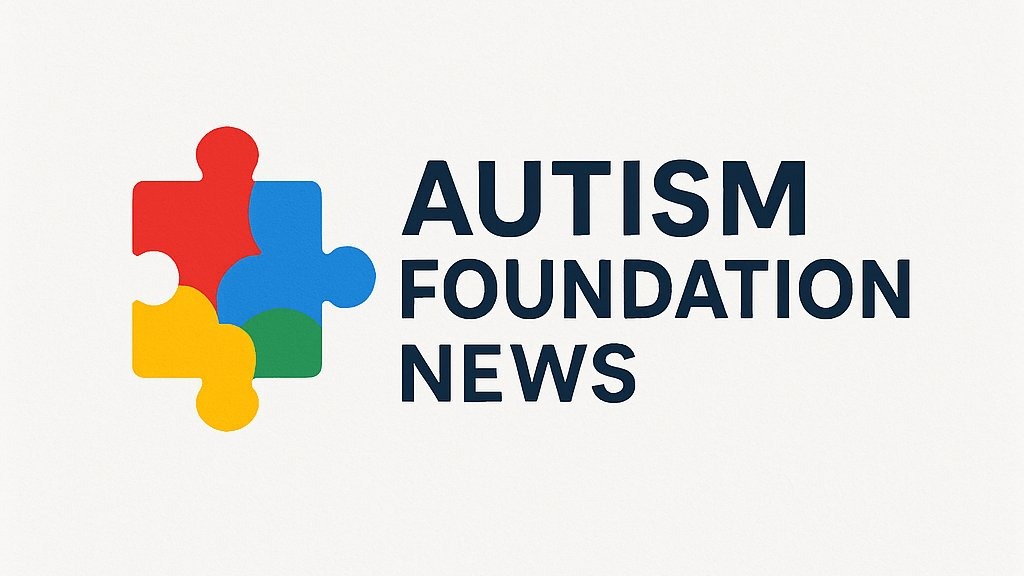Did you know that up to 70% of autistic people experience co-occurring physical or mental health conditions? Understanding this is crucial for quality health care.
Navigating life with autism spectrum disorder and health concerns can be overwhelming—but it doesn't have to be. Facing startling odds, autistic people experience a wide range of health challenges and additional health conditions that demand focused, informed care from both families and professionals. This comprehensive guide spotlights the critical links between autism spectrum disorder and health, equipping you with expert insights, supportive strategies, and practical steps for enhancing well-being and quality of life. Whether you are a caregiver, a family member, a health care provider, or someone living with ASD, this article will give you the tools to ensure better health outcomes and discover resources you can trust. Read on to empower yourself for action and advocacy.
Understanding Autism Spectrum Disorder and Health: The Link and Why It Matters
- Explore the definition of autism spectrum disorder and health
- Key symptoms and characteristics
- Why recognizing the health connection is crucial for early intervention
Autism spectrum disorder (ASD) is a complex developmental disorder characterized by challenges in social interaction, communication, and repetitive behaviors. Key symptoms can range from subtle social differences to more pronounced sensory sensitivities and communication barriers. These unique characteristics make it imperative to understand not just ASD as a diagnosis, but how it intertwines with overall health. Recognizing the health connection is crucial because, according to the American Academy of Pediatrics , early intervention can significantly improve outcomes for people with autism.
Individuals on the autism spectrum often face a wide range of both physical and mental health conditions. These can include everything from gastrointestinal issues and epilepsy to anxiety, depression, and other forms of mental illness. In turn, these health complications often go unrecognized or under-treated, intensifying difficulties associated with autism spectrum disorder and health care. Prompt recognition and a collaborative approach between families and care providers can lead to more effective early intervention strategies and comprehensive support throughout the lifespan.

What You'll Learn in Our Autism Spectrum Disorder and Health Guide
- Key facts about spectrum disorder and health
- Unique health care challenges for autistic people
- Strategies for health care providers to improve support
- How family members can advocate for better outcomes
- Resources and next steps for families and individuals
By exploring this guide, you'll uncover the essential elements that shape the landscape of autism spectrum disorder and health. We’ll look at critical statistics, examine common health complications, address obstacles in health care access, and provide actionable guidance for everyone involved. Whether you're searching for effective communication strategies for care providers, methods to empower family members, or understanding how to navigate day-to-day health routines, you'll find clear and practical steps in the sections ahead. Plus, discover trusted resources vetted by official government organizations, ensuring you stay safely connected to credible, up-to-date information.
Autism Spectrum Disorder and Health: Types, Prevalence, and Key Statistics
| Type of Autism Spectrum Disorder | Approximate Prevalence (US) | Common Co-Occurring Health Conditions |
|---|---|---|
| Autistic Disorder | ~1 in 44 children | Gastrointestinal disorders, epilepsy, sleep issues |
| Asperger's Syndrome | Variation within ASD figures | Anxiety, depression, sensory processing disorder |
| Pervasive Developmental Disorder-Not Otherwise Specified (PDD-NOS) | Included in overall ASD prevalence | Learning disabilities, co-occurring mental illness |
| Childhood Disintegrative Disorder & Rett Syndrome | Rare | Seizures, severe motor and developmental challenges |
Recent studies from the Centers for Disease Control and Prevention and other official government sources indicate that about 1 in 44 children in the United States is diagnosed with autism spectrum disorder. The presence of a wide range of co-occurring health conditions—such as epilepsy, sleep disorders, and chronic gastrointestinal issues—raises the stakes for early and ongoing health care. Understanding these statistics underscores the need for families, care providers, and healthcare providers to remain vigilant and proactive in supporting everyone impacted by ASD, ensuring that sensitive information is managed safely within healthcare systems.
Developmental Disorder: Understanding the Core
- Defining developmental disorder
- Autism spectrum's place among developmental disorders
- Treating developmental disorders: similarities and differences
A developmental disorder refers to a group of conditions resulting from impairments in physical, learning, language, or behavioral areas. Autism spectrum disorder stands out within this category due to its broad spectrum of symptoms and the diversity of people it affects. The American Academy of Pediatrics recommends developmental screening for all children, given the far-reaching impact a delay can have. What sets ASD apart is how it influences everything from communication to health outcomes, and why it responds best to individualized, multidisciplinary care strategies designed by knowledgeable care providers.
Compared to other developmental disorders—like ADHD or intellectual disabilities—autism spectrum disorder often presents unique challenges requiring precision in both diagnosis and treatment. While therapies such as speech and occupational therapy benefit many developmental disorders, interventions need to be tailored for the sensory and social needs more specific to ASD. By understanding these nuances, families and care teams can collaborate more effectively to enhance quality of life and ensure that health care is not just reactive, but preventative and holistic.
Major Health Conditions Common in Autism Spectrum Disorder
- Physical health conditions (GI issues, sleep disorders, epilepsy)
- Mental health challenges (anxiety, depression)
- Unique needs in health care access
A significant portion of individuals with autism spectrum disorder are at higher risk for both physical and mental health conditions. Common physical complications include gastrointestinal issues, such as constipation or chronic stomach upset, and neurological concerns like epilepsy. Sleep disturbances are also prevalent, often requiring specialized intervention from care providers. At the same time, a notable number of people with autism experience mental health challenges—particularly anxiety and depression—highlighting the need for integrated support from both mental health and physical health professionals.
It’s important to recognize that autistic people may present unique symptoms or communication barriers that make it difficult for standard health care approaches to identify and treat co-occurring conditions. This underscores the necessity for healthcare providers trained in autism spectrum disorder to use a flexible, personalized approach. With early detection and careful management, chronic health conditions can often be mitigated, greatly improving long-term outcomes.
"Autistic people are more likely to experience chronic health conditions—early detection saves lives."

Navigating the Health Care System: Barriers for Autism Spectrum Disorder
- Communication challenges in health care
- Health care provider training and knowledge gaps
- Limited access to specialized care providers
Despite the growing awareness surrounding autism spectrum disorder and health , many autistic people and their families confront significant obstacles in accessing the care they need. One of the most persistent barriers is communication challenges . Autistic individuals may have difficulty verbalizing symptoms or navigating conversations with unfamiliar providers, leading to misunderstandings or missed diagnoses. Equally, healthcare providers may lack specialized knowledge about autism spectrum disorders, further complicating care delivery plans.
Another barrier is the limited availability of specialized care providers . Many regions, especially those outside urban centers, suffer from a shortage of practitioners experienced in autism care. These gaps may result in longer wait times, fragmented care, or dependence on general practitioners ill-equipped to accommodate the unique needs of people with ASD. Awareness of these issues is the first step toward advocating for a more inclusive and accessible healthcare system for everyone with spectrum disorder.
Role of Health Care Provider and Care Providers
- Tailored approaches for autistic people
- Importance of multidisciplinary teams
- Building trust and understanding
Health care providers play a foundational role in supporting individuals with autism spectrum disorder. By adopting tailored approaches , such as using visual aids or allowing extra time for appointments, care providers can create environments where autistic people feel safe and understood. Effective care also relies on the involvement of multidisciplinary teams, often including speech therapists, occupational therapists, psychologists, and specialists in developmental disorders.
Building trust between autistic individuals, their family members, and their healthcare providers requires open communication, patience, and consistent support. Providers who familiarize themselves with the unique behavioral cues and preferences of each patient can establish stronger relationships and more accurate health assessments. Ultimately, these best practices can enhance participation, compliance, and satisfaction, leading to improved health care outcomes for people on the autism spectrum.
Daily Life with Autism Spectrum Disorder and Health: Challenges and Coping Strategies
- Sensory sensitivities and health routines
- Managing daily health conditions
- Support for family members and caregivers
Living with autism spectrum disorder and health complications involves constant adaptation, particularly when it comes to sensory sensitivities and daily routines. For many autistic people, medical settings, unpredictable changes, or certain textures, sounds, or smells can trigger anxiety or distress. Establishing consistent routines and using sensory-friendly tools—such as noise-reducing headphones or weighted blankets—can help manage environmental triggers and foster comfort in both home and healthcare environments.
Managing co-occurring health conditions, such as epilepsy or sleep disturbances, often demands daily medication, careful dietary management, and regular medical monitoring. Family members and caregivers play a crucial role in navigating these routines, providing both practical assistance and emotional support. Through advocacy and coordinated planning with healthcare teams, supportive networks can significantly improve the day-to-day quality of life for those living with ASD.
Autistic People and Community Support
- Peer support networks
- Advocacy groups
- Inclusive health programs for community living
A robust network of community supports can make a tangible difference for autistic people and their families. Peer support networks offer a space to share experiences and coping strategies, while advocacy groups fight for policy changes and increased public awareness. These groups also educate healthcare providers and the public about the realities of autism spectrum disorder and health, creating opportunities for collective action and improved resource allocation.
Inclusive health programs focus on adjusting environments, screening protocols, and services to better meet the needs of the autism spectrum community. Participation in these programs not only enhances health and well-being but also reduces feelings of isolation, builds resilience, and strengthens a sense of belonging for autistic people of all ages.

Health Care Provider Strategies for Supporting Autism Spectrum Disorder
- Clear communication tips
- Tools for screening and assessment
- Adapting care for individual needs
For health care providers, supporting autism spectrum disorder and health requires a thoughtful, individualized approach. Using clear communication is essential—providers should avoid jargon, use straightforward language, and confirm understanding. Visual aids, written instructions, and schedules can help people on the spectrum process information more effectively and reduce anxiety in clinical environments.
Providers must also be equipped with tools for effective screening and assessment . This involves using evidence-based checklists, soliciting input from family members, and remaining alert to atypical presentations of common health conditions. Adapting care plans, whether through altered appointment structures or personalized health interventions, is critical to meeting the complex and dynamic needs of each individual.
"The right care provider can make a world of difference in health outcomes for people with spectrum disorder."

Family Member Advocacy: Enhancing Autism Spectrum Disorder Health Outcomes
- Navigating appointments and paperwork
- Coordinating care across providers
- Empowering family member participation
Family members are indispensable allies in improving autism spectrum disorder and health outcomes. Navigating medical appointments, completing paperwork, and tracking complex care regimens can be daunting. Yet, families can be empowered by organizing medical records, preparing written lists of questions or concerns, and maintaining regular communication with all care providers involved. These steps ensure that critical information is not lost and that the care team receives a holistic view of the person's needs.
Coordinating care across different healthcare providers—including pediatricians, mental health professionals, and specialists—often requires diligence and strong advocacy skills. Active involvement empowers families to seek second opinions, request specialized referrals, and stay updated on the latest research and guidelines. Through partnership and persistence, family members help drive improved outcomes and ensure continuity of care at every stage.

Transitioning to Adult Health Care for Autism Spectrum Disorder
- Lifespan approach to health care
- Adult health conditions for autistic people
- Considerations for independent living and self-care
The transition from pediatric to adult health care is a major milestone for individuals with autism spectrum disorder and health needs. A lifespan approach to care is critical, recognizing that support must adapt as a person moves from childhood into adulthood. New health challenges can emerge, including increased vulnerability to mental illness, chronic physical conditions, and the burgeoning need for skills that enable greater independence.
Planning ahead, arranging consultations with adult healthcare providers, and assessing options for supported living help ensure a smooth transition. Encouraging self-advocacy—teaching individuals to express their needs, manage medications, and take charge of their appointments—lays the foundation for greater autonomy. The involvement of family members and a coordinated team approach remain essential in navigating this important period of life.
People Also Ask: How Autism Spectrum Disorder and Health Interact
How does autism affect health?
- Explores links between autism spectrum disorder and physical/mental health outcomes
- Discusses increased prevalence of chronic health conditions
Autism affects health in numerous ways by increasing the likelihood of chronic physical and mental health conditions. Autistic people may experience gastrointestinal problems, epilepsy, and immune system differences—along with a higher prevalence of anxiety and depression. These risks demand ongoing monitoring and care by healthcare providers, emphasizing the importance of early screening, personalized care, and support systems specifically designed for people with autism spectrum disorder.
How does autism spectrum disorder affect daily life?
- Examines sensory sensitivities, routines, and daily management of health
Autism spectrum disorder can impact daily routines due to heightened sensory sensitivities and the need for structure. Navigating medical appointments or unfamiliar environments may trigger stress, while managing daily health needs—such as medications or specialized diets—poses additional challenges. Support systems and strategies such as visual schedules and consistent routines help reduce anxiety, increase independence, and empower autistic people to engage more confidently in daily life.
What health complications do autistic people have?
- Details epilepsy, gastrointestinal disorders, sleep issues, and mental health
Autistic people commonly experience a range of health complications, including epilepsy, gastrointestinal disorders, sleep issues, and co-occurring mental illnesses such as anxiety or depression. These health conditions may appear alongside more subtle behavioral concerns and require vigilant monitoring and timely intervention from experienced health care providers and supportive family networks for optimal outcomes.
What are the needs of adults with autism?
- Highlights transition to adult health care, employment support, and housing
Adults with autism need lifelong access to tailored health care, employment support, and safe, appropriate housing. The transition to adult services can be daunting, so proactive planning and advocacy from both individuals and family members are vital. Support programs, community-based services, and consistent care provider relationships can help ensure adults with ASD continue to thrive in all aspects of life.
Key Health Tips and Resources for Autism Spectrum Disorder and Health
- Routine screenings and preventive care
- Building a healthcare support network
- Reliable autism spectrum disorder and health resources
To foster good health, families and care providers should prioritize routine screenings and preventive care. Build a trusted healthcare support network—including specialists and therapists—and maintain active communication with all care providers involved. Seek out reliable resources, such as official government websites or advocacy organizations, to remain informed about new research, treatments, and community programs. These practices ensure that sensitive information is managed safely and that individuals with ASD receive the comprehensive care they deserve.
Frequently Asked Questions About Autism Spectrum Disorder and Health
- What should I tell my healthcare provider?
- How can family members help?
- Where can I find support for co-occurring health conditions?
What should I tell my healthcare provider?
Share sensitive information about communication preferences, health routines, sensory triggers, and any past adverse experiences. Be specific about current symptoms and medication, and provide written summaries if helpful. This allows your care provider to tailor their approach to your unique needs.
How can family members help?
Family members can support by organizing medical information, preparing for appointments with questions, advocating for referrals to specialists, and assisting with day-to-day health routines. Proactive involvement helps bridge communication gaps, ensures continuity, and improves cooperation between all care providers.
Where can I find support for co-occurring health conditions?
You can access resources through autism-focused advocacy groups, national gov websites, and reputable medical organizations. Many offer directories of specialized clinicians, informational webinars, and local peer support groups, ensuring you’re safely connected with comprehensive, up-to-date care networks.
Strengthening the Future: Positive Steps for Autism Spectrum Disorder and Health
- Ongoing advocacy
- Inclusive research for better outcomes
- Accessible healthcare solutions
Addressing autism spectrum disorder and health demands ongoing advocacy and a commitment to research and innovation. Inclusive research ensures that new treatments and interventions reflect the real-world needs of people with ASD and their families. Collaboration across healthcare, education, and policy sectors is necessary to develop solutions that are both accessible and responsive, guaranteeing lifelong support for everyone affected.
Final Thoughts: Taking Action Toward Better Health Care for Autism Spectrum Disorder
- Next steps for individuals, families, and healthcare providers
- Encourage ongoing education and advocacy
- Invitation to access further health resources and community support
Take action by seeking early screening, advocating for individualized care, and building supportive networks. Pursue continuous learning and advocacy—you have the power to shape better health outcomes for people with autism spectrum disorder.
 Add Row
Add Row  Add
Add 




Write A Comment